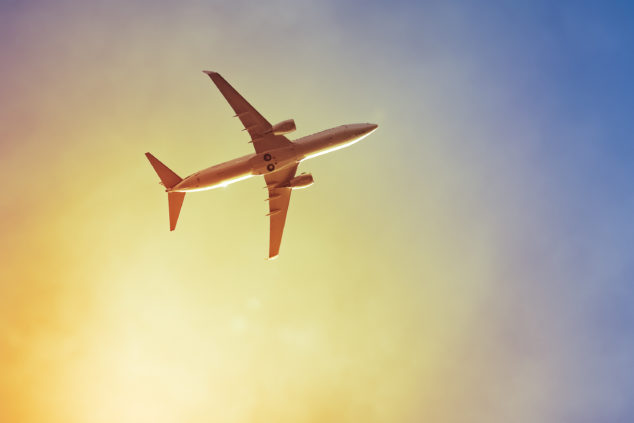The application of AI across a time sensitive industry like travel can ultimately not only substantially reduce the time taken to perform certain procedures, but also provide travellers with an experience that is truly personal for them to take ownership of The travel industry has always been at the forefront of technological progress.
copyright by www.information-age.com
 With the meteoric rise of gig economy firms like AirBnB and Uber, the recent spike of innovation in the industry has manifested itself in a new cohort of ideas and business models.
With the meteoric rise of gig economy firms like AirBnB and Uber, the recent spike of innovation in the industry has manifested itself in a new cohort of ideas and business models.
Typically, in response to growing customer demands, the sector as a whole has been more willing than most to embrace first-mover advantage when it comes to technology. With websites initially being used as the primary means to engage customers, the rise of evolving mobile applications is now the most popular and effective way of ensuring organisations stay connected with their customers any time, any place, anywhere.
Artificial intelligence (AI) now represents the next wave of technological innovation in the sector. Whether it’s predicting travellers’ preferences, personalising a particular service, amending bookings, or addressing last minute requests, the power of the technology is increasingly being deployed to smooth these processes and overcome any obstacles.
Staying ahead of the competition in today’s market will ultimately be determined by whichever firm can offer the most relevant and tailored service to its clientele. This is where AI comes into play. For example, the hotel chain Dorchester Collection recently used AI to analyse guest reviews to update its breakfast menu by offering customised options.
To maximise the potential of the technology, understanding and recognising the areas that it should be applied to are crucial. Only then will the customer experience truly be improved.
The facial recognition makeover
Travelling anywhere has always required detailed inspection of documentation, and, as border security has tightened, embarkation and disembarkation processes have become stricter.
Significant developments in facial recognition technology have however highlighted just how these processes can be eased, with the technology capable of eliminating the need for rigorous document checks altogether. In combination with blockchain, issues regarding transactions in duty free stores and restaurants will also become a thing of the past. […]
Thank you for reading this post, don't forget to subscribe to our AI NAVIGATOR!
read more – copyright by www.information-age.com


The application of AI across a time sensitive industry like travel can ultimately not only substantially reduce the time taken to perform certain procedures, but also provide travellers with an experience that is truly personal for them to take ownership of The travel industry has always been at the forefront of technological progress.
copyright by www.information-age.com
Typically, in response to growing customer demands, the sector as a whole has been more willing than most to embrace first-mover advantage when it comes to technology. With websites initially being used as the primary means to engage customers, the rise of evolving mobile applications is now the most popular and effective way of ensuring organisations stay connected with their customers any time, any place, anywhere.
Artificial intelligence (AI) now represents the next wave of technological innovation in the sector. Whether it’s predicting travellers’ preferences, personalising a particular service, amending bookings, or addressing last minute requests, the power of the technology is increasingly being deployed to smooth these processes and overcome any obstacles.
Staying ahead of the competition in today’s market will ultimately be determined by whichever firm can offer the most relevant and tailored service to its clientele. This is where AI comes into play. For example, the hotel chain Dorchester Collection recently used AI to analyse guest reviews to update its breakfast menu by offering customised options.
To maximise the potential of the technology, understanding and recognising the areas that it should be applied to are crucial. Only then will the customer experience truly be improved.
The facial recognition makeover
Travelling anywhere has always required detailed inspection of documentation, and, as border security has tightened, embarkation and disembarkation processes have become stricter.
Significant developments in facial recognition technology have however highlighted just how these processes can be eased, with the technology capable of eliminating the need for rigorous document checks altogether. In combination with blockchain, issues regarding transactions in duty free stores and restaurants will also become a thing of the past. […]
Thank you for reading this post, don't forget to subscribe to our AI NAVIGATOR!
read more – copyright by www.information-age.com
Share this: